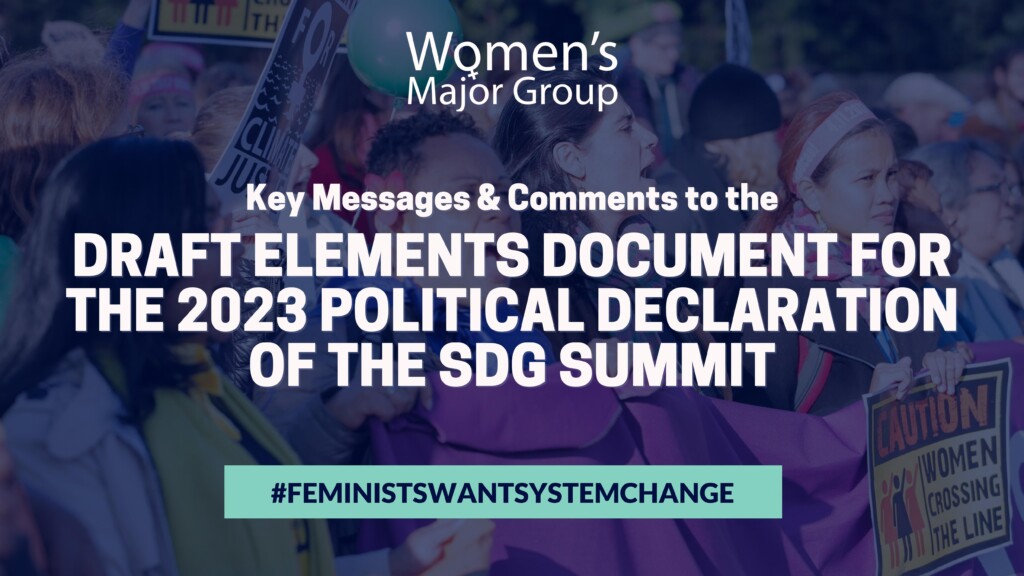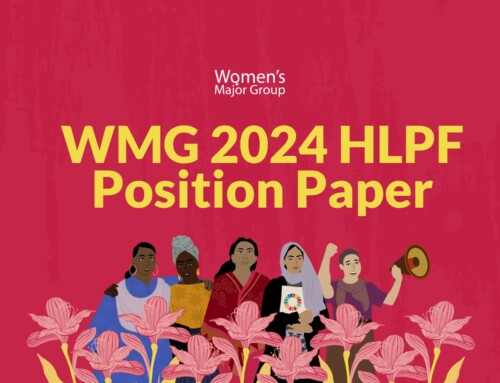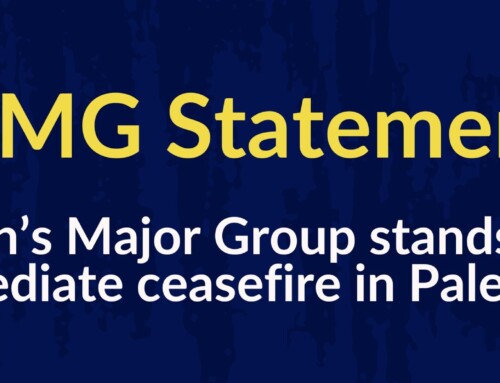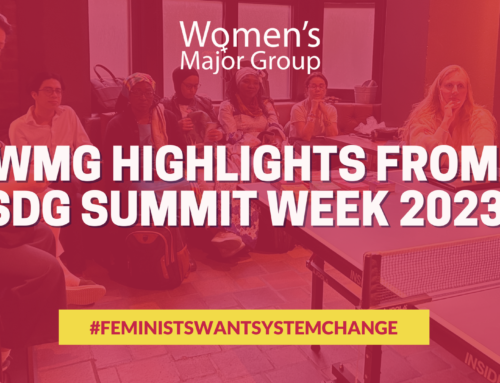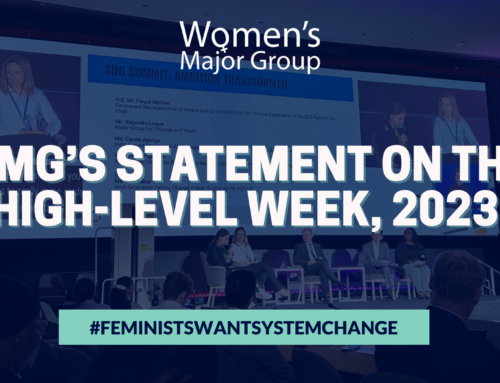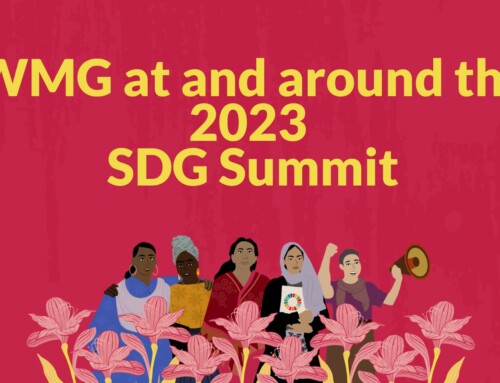Following are WMG’s Key Messages and Comments to the Draft Elements Document for the 2023 Political Declaration of the SDG Summit.
Introduction
We thank the co-facilitators for ensuring an open, inclusive process for the Political Declaration of the 2023 SDG Summit and the opportunity to submit key messages and comments to the draft elements document. We hope that this fruitful engagement will result in an outcome document that reflects the ambition and commitment of civil society in all its diversity to reach the SDGs by 2030 and not leave anyone or any group behind. We believe in a robust multilateral system with the UN at its center supporting and encouraging governments to exercise their power for transformative change. To this end, we welcome the co-facilitators’ commitment to draft a transformative, action-oriented Political Declaration and urge member states to develop credible, measurable and time-bound commitments to accelerate progress toward the full implementation of the 2030 Agenda for Sustainable Development.
Our Shared Resolve
The Political Declaration should clearly affirm that the current business-as-usual approach is not just insufficient to address the multilayered crises and challenges we face, but is in fact detrimental to the vision of the 2030 Agenda for environmental integrity, human security, prosperity and dignity. It should demonstrate a clear commitment to advancing human rights, leaving no one behind, and demonstrating the political will to secure all necessary resources to reach the SDGs by 2030, including through equitable financing and scientific and technological transfers. This section should prioritize bold, concrete commitments to reversing the global erosion of women’s rights and gender equality, including in the United Nations system and other multilateral fora. To this end, we strongly encourage a reaffirmation of and references to the Beijing Declaration and Platform for Action, the Women Peace and Security Agenda, the Convention on the Elimination of all forms of Discrimination Against Women, and other global normative frameworks on gender equality and the empowerment of women and girls in all their diversity.
Special attention should also be paid to the linkages between the backsliding of women’s rights and gender equality and the shrinking civic space and backsliding on democratization that is currently underway in many parts of the world. We urge the co-facilitators to consider commitments that can empower civil society in all its diversity to contribute to the implementation of the SDGs and hold governments and all other actors involved accountable for progress and setbacks to the full achievement of the 2030 Agenda. To this end, the Major Groups and Other Stakeholders can serve as a template of institutional methodology for the inclusion of diverse stakeholders from the local, national and regional levels.
As in previous years and documents, we caution against the uncritical inclusion of the private sector in the implementation of Agenda 2030, considering the absence of an accountability framework that would bind private sector stakeholders to international human rights regulatory frameworks.
Our Changed World
In this section, we welcome the analysis of the multi-layered crises we are facing today. We strongly encourage the co-facilitators to ensure that the gender backlash, rising inequality and discrimination, and shrinking civic space, are identified as ongoing crises, alongside poverty, climate change, biodiversity loss, and conflict. Additionally, we urge the co-facilitators to ensure that the section on COVID-19 adequately reflect the gendered-impacts of the pandemic, with a particular focus on the horrific surge in gender-based violence, the curtailment of sexual and reproductive health and rights, and the economic impact of women’s increased care burden during the pandemic.
More broadly, we believe that the Political Declaration should acknowledge that many of our challenges are rooted in our current economic system, which prioritizes GDP growth and short-term profit to the detriment of the long-term wellbeing of the people and the planet.
Turning our World toward 2030
Therefore, the Political Declaration should serve as a blueprint to develop a concrete action plan to move ‘beyond GDP’ and transform our economic systems to serve the wellbeing of people and the planet, adequately reflecting the value of women’s unpaid work and moving beyond using the environment as a source of unlimited, free resources.
More broadly, to truly empower women and girls in all their diversity, we must ensure that gender is mainstreamed in plans, laws, policies and programmes for the advancement of the 2030 Agenda. Doing so will require significant investments in gender-disaggregated, intersectional data to inform policy-making at all levels and stages and enable meaningful accountability for HLPF and SDG Summit outcomes.

